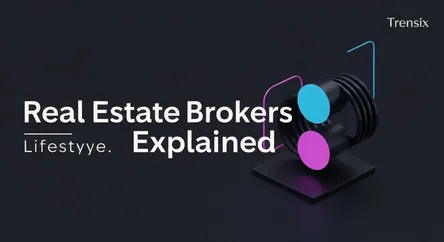Lifestyle
Real Estate Brokers Explained

Discover the role of a real estate broker, the licensed professional who oversees agents and ensures smooth property transactions. Learn why they matter.
What is it?
A real estate broker is a licensed professional who has completed advanced coursework and passed a specific broker's license exam, going beyond the requirements of a standard real estate agent. Brokers are authorized to operate their own real estate firm and can hire other agents to work for them. They can also work independently, representing clients directly in property transactions. Essentially, they possess a deeper understanding of real estate law, finance, and ethics, allowing them to oversee complex deals and manage a brokerage.
Why is it trending?
The role of a broker is gaining prominence due to an increasingly complex housing market. With fluctuating interest rates and intricate regulations, buyers and sellers seek the higher level of expertise and legal protection that a broker provides. Furthermore, the rise of real estate technology (proptech) has created a demand for tech-savvy brokers who can leverage digital tools for marketing, analytics, and transaction management, offering a more efficient and comprehensive service than ever before.
How does it affect people?
For home buyers and sellers, working with a broker or an agent from a broker-led firm offers an added layer of security and expertise. Brokers are legally responsible for the transactions handled by their agents, ensuring compliance and proper conduct. For real estate agents, working under a broker provides mentorship, legal oversight, and a pathway for career advancement. Ultimately, brokers are crucial for maintaining professional standards and trust within the real estate industry, directly impacting the financial well-being of their clients.